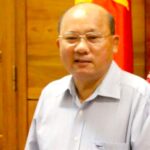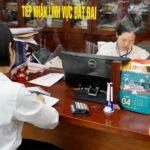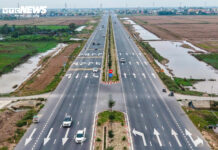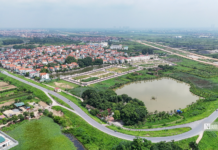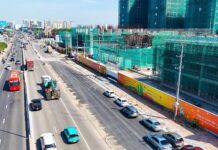Converting Golf Course Land into Urban Residential Land
After nearly a month of investigation, the Supreme People’s Procuracy of Vietnam issued an indictment to prosecute former Chairman of the People’s Committee of Binh Thuan province, Le Tien Phuong, for “Violation of regulations on the management and use of state assets, causing loss and waste.”
Along with Le Tien Phuong, the prosecution also accused Nguyen Ngoc and Nguyen Van Phong, former vice-chairmen of the People’s Committee of Binh Thuan province, Xa Duong Thang, former director of the Department of Construction and former Secretary of Bac Binh District’s Party Committee, Ho Lam, former director of the Department of Natural Resources and Environment, Do Ngoc Diep, former chairman of Phan Thiet City’s People’s Committee, Le Quang Vinh, former Secretary of Phu Quy District’s Party Committee and chairman of the People’s Committee, and Nguyen Van Phong, former deputy director of the Department of Finance and former standing member of the provincial land price appraisal council.
In the indictment, the Supreme People’s Procuracy assessed that this was an extremely serious case that occurred in the field of state management of land in the locality.
According to the indictment, Regent International OverSeas Corp (Hong Kong) was approved by the government to invest in the Ocean Dunes Golf Club project, covering an area of 62 hectares. In 2013, Rang Dong Company purchased all the shares of Regent International OverSeas Corp in Phan Thiet Golf and Golf Club Limited Company for 2.5 million USD.
After acquiring the project, Rang Dong Company continued to implement it and submitted a dossier requesting an adjustment to the investment certificate.
In November 2013, as the Chairman of Binh Thuan Provincial People’s Committee, Le Tien Phuong issued a certificate recognizing Rang Dong Company as the successor to all obligations, rights, and interests of the previous investor. The company proposed to the province to convert golf course land into urban residential land in the Ocean Dunes Golf Club project.
Based on the proposal of Rang Dong Company and the advice of departments and sectors, on March 13, 2014, Le Tien Phuong signed a report to the Provincial Party Committee’s Standing Committee, requesting approval for the conversion of the purpose of land use of Phan Thiet golf course into urban residential land. Just two months later, the Provincial Party Committee’s Standing Committee held a meeting and agreed to allow the People’s Committee of Binh Thuan province to report and request the Prime Minister to permit the conversion of the entire 62-hectare golf course into a urban area in the Ocean Dunes Golf Club project of Rang Dong Company.
In October 2014, the Prime Minister sent a dispatch to the Ministry of Planning and Investment and the People’s Committee of Binh Thuan province regarding the adjustment of the Phan Thiet golf course, agreeing to remove the Phan Thiet golf course from the master plan for Vietnam’s golf courses by 2020. The People’s Committee of Binh Thuan province was tasked with resolving related issues in accordance with legal regulations, ensuring efficient land use, environmental protection, and sustainable development.
With the approval of the Prime Minister, the People’s Committee of Binh Thuan province reported and received the consent of the Provincial Party Committee’s Standing Committee. Subsequently, the People’s Committee of Binh Thuan province directed the departments and sectors to make recommendations, carry out procedures for adjusting the investment certificate, adjusting the master plan for construction of Phan Thiet city, granting planning permission for the urban area in the golf course project, guiding Rang Dong Company in establishing a detailed plan, adjusting land use planning, etc.
In March 2015, at the request of the Department of Planning and Investment of Binh Thuan province, Le Tien Phuong signed the investment certificate (sixth amendment) adjusting the investment content from the Ocean Dunes Golf Club project to the Phan Thiet Beach Tourism Urban Area project.
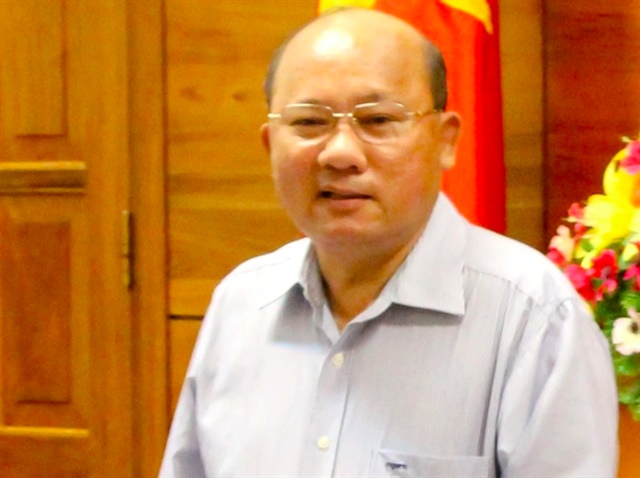 Le Tien Phuong |
In addition, Le Tien Phuong signed and issued a decision approving the detailed construction planning of Phan Thiet Beach Tourism Urban Area at a scale of 1/500 for the golf course land. The land structure included 363,534 square meters of residential land combined with commercial services, with the remaining area allocated for public land, transport infrastructure, parks, and green spaces. Notably, the plan did not allocate 20% of the residential land for social housing construction.
Subsequently, the former chairman of Binh Thuan province and the accused individuals at the provincial departments and sectors committed violations of regulations in the formulation, appraisal, and approval of land prices for the Phan Thiet Beach Tourism Urban Area project, causing particularly serious damage to state assets.
Rang Dong Company Benefitted from the Violations
According to the appraisal, the act of approving prices for over 10 hectares of land planned for high-rise buildings in the project caused a loss of more than 154 billion VND, while the determination of prices for over 25 hectares of low-rise housing caused a loss of 154 billion VND.
The prosecution concluded that the violations committed by Le Tien Phuong and his accomplices resulted in a total loss of 308 billion VND, and Rang Dong Company benefitted from this amount.
According to the testimony of the former chairman of Binh Thuan Provincial People’s Committee, the motivation for the crime was the desire to expedite the approval of land prices, collect land use fees for the state budget, accelerate project implementation, create a highlight for the city’s tourism industry, and contribute to local socio-economic development. Additionally, as the land price scheme had been revised multiple times, the accused did not want to pass on the responsibility for approving land prices to his successor.
Nguyen Ngoc, former vice-chairman of Binh Thuan Provincial People’s Committee, stated that the reason for the crime was the pressure of work as the chairman of the People’s Committee frequently directed to expedite the approval of land prices, collect land use fees for the state budget, and implement the project promptly to create a highlight for the city’s tourism industry.
Hoang An
“The Misdeeds of Binh Thuan Province’s Former Leaders: How Their Wrongdoings Benefitted Rang Dong Company to the Tune of Over 300 Billion Dong”
According to the prosecution, the group of former leaders of Binh Thuan Province approved the pricing for over 10 hectares of land designated for high-rise buildings and valued over 25 hectares of low-rise residential land in the project of Rang Dong Company, causing a loss of 308 billion VND to the state.
The Alluring ‘Commission’ Scheme: How Banks Push Loan Customers into Buying Insurance
Financial experts have revealed that, in the first half of this year, there were still reports of customers being required to purchase insurance packages to access loan disbursements. The root cause of this issue lies in the high commissions offered by insurance companies for investment-linked insurance products, with some companies paying over 100% in commissions to their partners, leading to banks turning a blind eye.
“Made in Vietnam: The New Manufacturing Powerhouse in the Trump 2.0 Era?”
For decades, Vietnam has been welcoming major corporations such as Apple, Samsung, and Intel with open arms. Now, the country is poised to seize even bigger opportunities.

